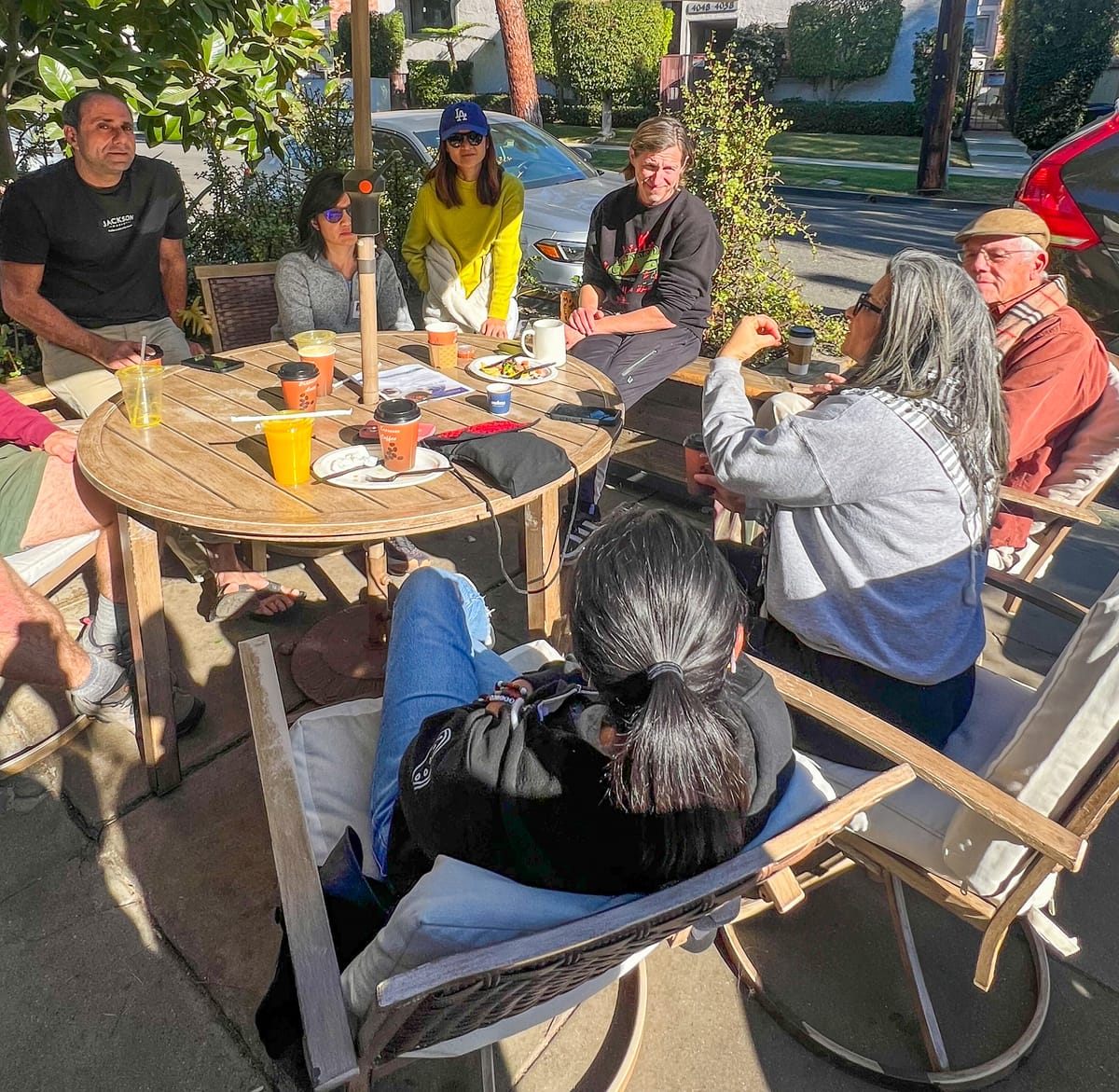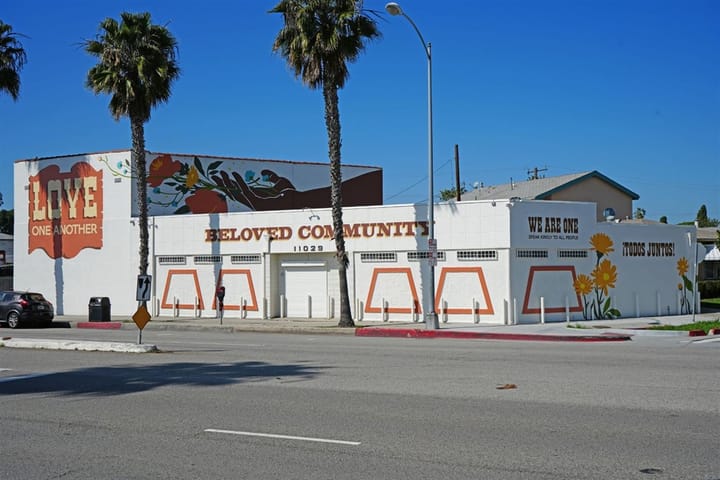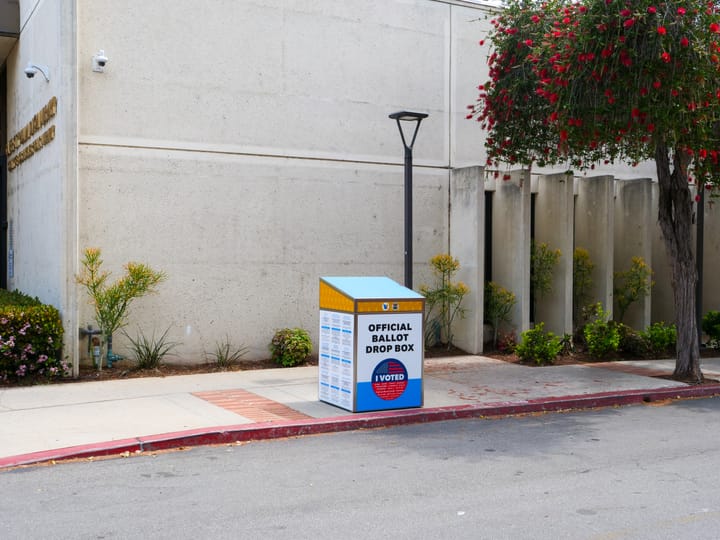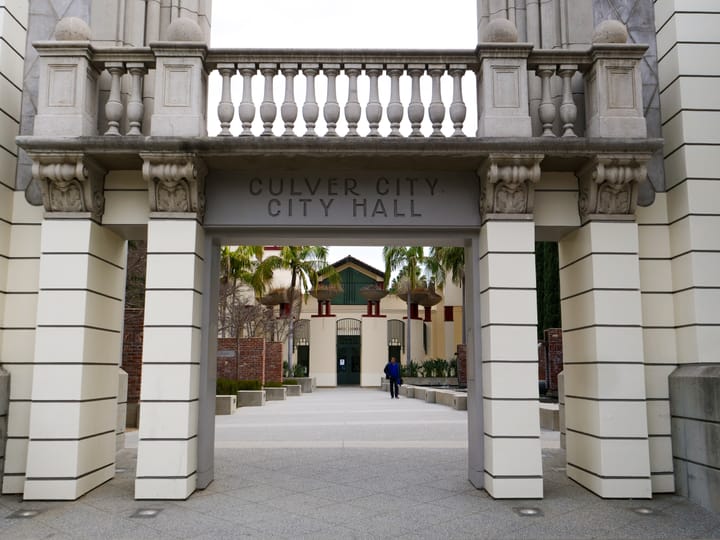Israel-Palestine Community Conversation approved amidst agreement to pause fighting
Despite the pause, officials and residents believe there is still a need for a community forum.

The Culver City Council approved a community conversation about residents' differing views on the Israel-Palestine-centered conflict in the Middle East at its meeting Monday night, which extended into the early morning hours of Tuesday. The conversation is tentatively set for February 2025, but the Equity and Human Relations Advisory Committee (EHRAC) will arrange a more concrete date and details at its next meeting on January 28.
The official title for this conversation is "Spark Healing Through Conversation: How the Crisis in the Middle East Affects Me," and is meant to focus on the impact of the crisis and the loss of life it has incurred on individuals in Culver City. This decision came less than 48 hours before Israel and terror organization Hamas agreed to a hostage return and pause in the most recent escalation of the long conflict Wednesday morning.
While a specialized EHRAC subcommittee will iron out many of the conversation's details, several baseline assumptions about its makeup prompted the city council to give the green light to hold it.
One of these key points is that the conversation will be professionally moderated. EHRAC Chair Samia Bano explained that the moderators — Zahra Sakkejha and Michal Greenfield — were picked because of their experience with the Israel-Palestine conflict. Still, some residents expressed concerns over past statements they have made on the conflict during public comment at Monday's meeting.
Bano acknowledged these concerns and said these moderators were not set in stone. They were initially presented at the November 19, 2024 EHRAC meeting because they were willing to work free of charge and were available that night, the originally proposed day for the conversation.
Councilmember Bubba Fish noted the topic's highly publicized and sensitive nature and argued it would be challenging to find moderators entirely neutral to the conflict.
"When it comes to something this loaded, I don't know if we will ever find a person that is that perfect moderator that makes every single person feel comfortable," Fish said. "We have to pick moderators that have experience facilitating these conversations and make sure people come away feeling like they learned something."
Another critical factor criticized was the attempt to keep the focus away from a ceasefire resolution. While supportive of the conversation, many pro-Palestinian supporters still clamored for a ceasefire as the ultimate result and argued the conversation wouldn't be genuine for them without that topic.
"How can any healing start if there is no declaration to stop the violence," a speaker signed up as Alice H. asked during her comments.
Members of the city council understood the gravity of the situation as calls to support both sides have steadily come into the council chambers since the most recent escalation of the conflict by agents of Hamas based in Palestine on October 7, 2023.
Councilmember Albert Vera was one of the first council members to officially acknowledge and attempt to act upon pleas from pro-Palestinian protestors. He said that he feels a conversation is necessary to open people's minds and hearts to each other.
"There's all kinds of confusion on both sides...no one wants children to die," Vera said during his comments at the meeting. "Until we have that opening conversation with one another and respect each other's feelings, we will not get anywhere."
Mayor Dan O'Brien initially was not on board with carrying out this conversation, saying he originally planned to stay out of international affairs for the rest of his term. However, he offered to meet with advocates early on in the conflict and saw just how profound its impact on the residents of Culver City was.
"There were a lot of tears and panic," O'Brien said of that meeting. "For that reason, I feel we need to have this conversation."
While there are accusations of outside agitators trying to influence Culver City politics in this matter, many advocates can call themselves members of the Culver City community. Among them is Jackson Market general manager Nicholas Conner, who told Culver Crescent that Culver City residents' connections with organizations like Code Pink have created a fear of outside influence.
Conner said at the council meeting that he and Jackson Market owner Fawaz Istwani have faced negativity for their pro-Palestinian advocacy.
"What is happening on social media and the way people describe us is bullying," Conner said at Monday's meeting. "It is singling us out, mischaracterizing us, and trying to describe us as something different than we are."
Those in support of Israel argue that the aggression from Hamas and the attempts to call for a ceasefire demonstrate disapproval of Israel's right to defend itself as a Jewish state.
Some have taken the portrayal of the events as a genocide rather than a retaliation to terrorism as an attack on the Jewish people's right to their own state, and have expressed fear and discomfort while being in Culver City since the attacks and the ensuing fallout.
"I never thought in all this time that as a Jew, Culver City would be an uncomfortable place to work and live," Rachel Snyder said during her comments, "but since October 7, 2023, that has been the case."
Speaking at his first meeting as a council member, Fish acknowledged the persistence of the advocates and demonstrators calling for a ceasefire, noting he himself made public comments at meetings before his council term calling for a resolution. He also expressed his appreciation for EHRAC Chair Bano's proposal to focus on facilitating healthy dialogue between people with different viewpoints.
The only council member who did not vote yes to approve the conversation echoed the concerns of some residents with a more outside and neutral position on the conflict. Councilmember Yasmine-Imani McMorrin — who abstained from voting on the conversation — said that she heard the community's suffering but was also receiving mixed messages about the conversation and what it should focus on.
Her concern was that the vast array of ideas she was hearing about what this conversation needed would make it difficult to hold a fair and meaningful dialogue. She argued that specific goals needed to be set to help guide the conversation towards something productive.
"We have to acknowledge that folks are coming at this issue from all different points," McMorrin said. "If there is no consensus on the moderator, will healing for all communities take place?"
Even as the pause to the fighting is being implemented Wednesday morning, the need for a community conversation remains apparent in the eyes of both officials and residents. O'Brien told Culver Crescent that he was relieved to hear of the agreement but believes a community conversation is still necessary.
"As it relates to our efforts here in Culver City to foster an environment of welcomeness and understanding for all of its residents, I still feel it is important to bring people together for this community conversation," O'Brien said in a text.
Fish told Culver Crescent after the agreement that this conversation could help members of the Culver City community learn to talk to each other in a more amicable and understanding way.
"The biggest impact that we can have as a community on this is to learn how to reach people who might not think the same way or get the same news as you," Fish said.
Pro-Palestinian community members also felt that there was still a need for a conversation, arguing that the focus did not need to be on the conflict itself. Instead, members of advocacy group Culver City Residents for Peace argued that the conversation could instead turn towards the humanitarian aid necessary to rebuild areas of Gaza impacted by the conflict.
While February 2025 was set as a tentative date for this motion, the February Community Conversation Ad Hoc Subcommittee created at the November 19, 2024 EHRAC meeting will begin finalizing the date and details at its next meeting on January 28.




Comments ()